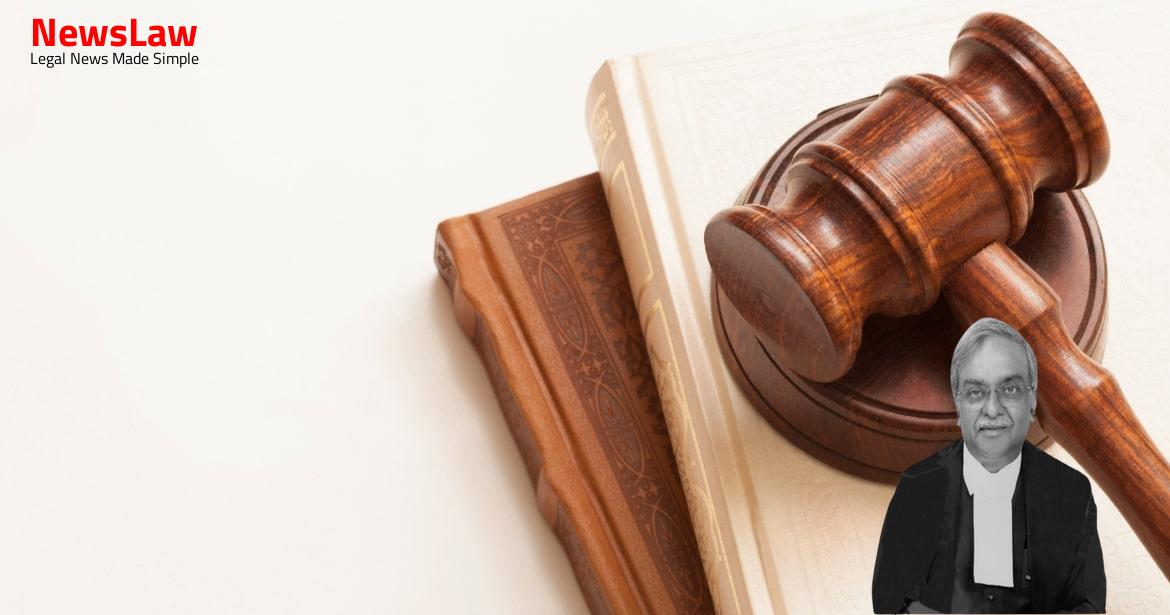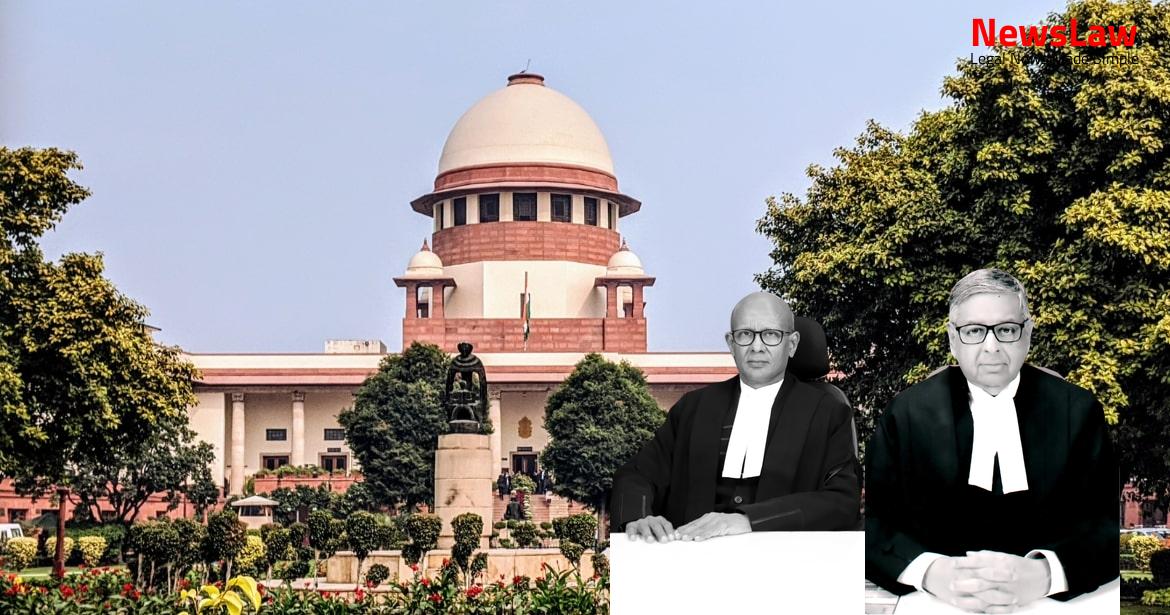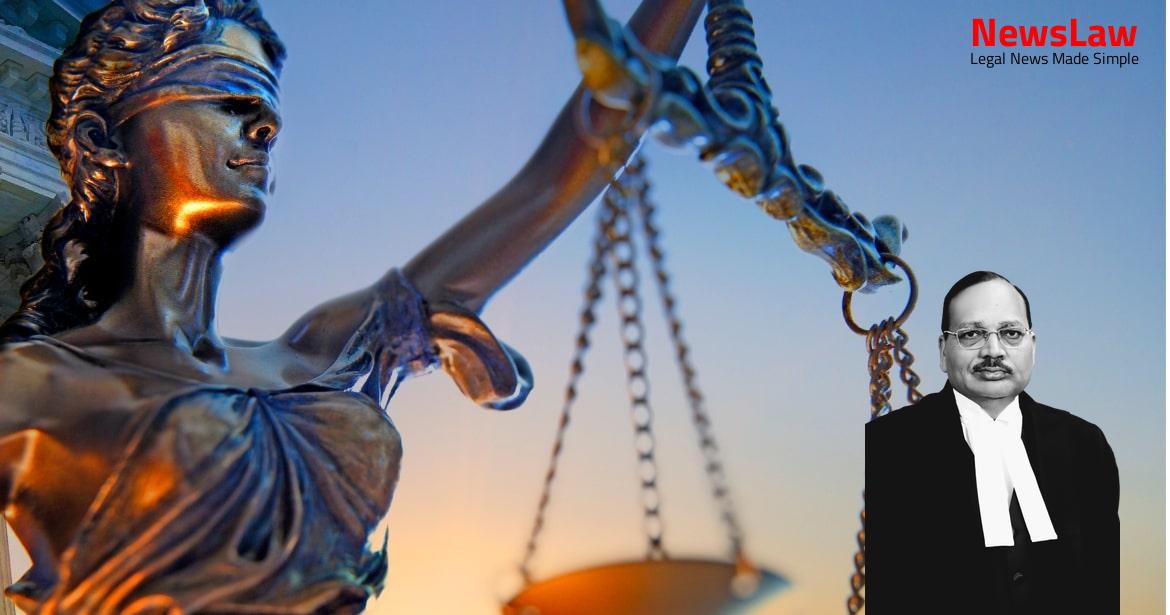Discover a detailed legal analysis focusing on the doctrine of res judicata in a complex property ownership dispute. Explore how the court’s scrutiny of prior judgments, jurisdictional limitations, and the role of parties shape the decisions on property titles. Delve into the intricacies of necessity tests, essentiality criteria, and the impact of compromises on ownership claims. Stay tuned for an insightful exploration of the nuances in legal reasoning in property disputes.
Facts
- An appeal was filed by Abdul Khuddus before the High Court assailing the finding that items 1, 4 and 5 belonged to the mosque.
- The High Court dismissed the appeal citing reasons such as ownership being decided in favor of Abdul Khuddus in a previous suit, the binding nature of judgments in representative suits under Section 92 CPC, and the requirement for the court to establish that the property belongs to the Trust when determining a scheme for Trust administration.
- The court had the power to order delivery of possession under Section 92 of the CPC, and the silence of the plaintiff until filing the suit raised questions about a prior declaration of Wakf property in 1965.
- A decision by a competent court with limited jurisdiction can operate as res judicata, even if that court cannot try subsequent suits due to its jurisdictional limitations.
- The High Court partially allowed an appeal regarding items 1 and 5, noting that the former suit under Section 92 CPC for settling a scheme did not bar the subsequent suit under res judicata.
- The Trial Court inferred a prima facie right of the defendant to the property and initiated steps for remand due to incomplete representation of defendants before the High Court.
- An appeal against the Trial Court’s decree was dismissed for reasons including the applicability of res judicata from prior suits and decisions regarding properties not belonging to the mosque.
- Various court judgments were cited, discussion on limitation issues was conducted, and the defendant’s testimony disassociating the mosque from specific properties was considered in the verdicts.
- Multiple instances of remand and appeals were mentioned, with the High Court reiterating the bar of res judicata on subsequent suits due to conclusive decisions on property titles in former suits.
- The Wakf Board relinquished its title over the suit property.
- O.S. No 100/1983 sought an injunction against Abdul Khuddus.
- The suit was filed under Section 92 CPC to settle a scheme for mosque management.
- Defendants 5 to 9 executed sale deeds in favor of Defendants 1 to 4.
- Abdul Khuddus, as a khazi, had rights to the usufruct of the property.
- The suit was compromised allowing Abdul Khuddus to collect rent from the lessee.
- The High Court’s decision on the ownership of the property was not challenged before the court.
- Explanation IV to Section 11 CPC makes a judgment in a representative suit binding on all interested parties.
- Any alienation by Defendants 5 to 9 without board approval is void.
- The cause of action arose when the defendants interfered with the plaintiff’s possession.
- Defendants 2 to 4 argued that the current suit is barred by res judicata citing a previous judgment.
- The District Judge declared the suit property as the personal property of Abdul Khuddus in a prior suit.
- The Wakf Board withdrew its claim over the suit property post a compromise.
- Defendants 6 to 9 took possession of the property after Abdul Khuddus’ death.
- The first suit instituted by residents against Abdul Khuddus led to the State Wakf Board taking over management.
- The binding nature of a judgment in the previous suit and the issuance of a notification declaring the property as wakf were emphasized.
- The suit sought to establish that the property is a ‘Khazi Service Inam’ managed by Abdul Khuddus for the Wakf Board.
Also Read: Electoral Malpractices in Mayor Election
Issue
- Scope of the first suit initiated under Section 92 of the CPC is to be determined
- Comparison of parties involved in the first suit and the current proceedings
- Analysis of whether the issue of title over the suit property was decisively settled in the first suit
Also Read: Balancing Power and Transparency: Electoral Bonds Struck Down, Disclosure Mandated
Arguments
- The scope of a suit under section 92 CPC, particularly in view of seeking a declaration, was expounded by Justice BK Mukherjea.
- Principles from the Bhagwandasji case regarding representative suits under section 92 CPC were outlined.
- The plaintiff can only seek reliefs listed in section 92 CPC.
- A declaration that the suit property belongs to the trust falls outside the scope of the reliefs under section 92 CPC.
- Merely denying the trust’s title over the property does not oust the court’s jurisdiction.
- Title of the trust contested necessitates determination of the suit property’s title for adjudication on the final relief.
- Title claim to the suit property may be considered abandoned due to the compromise deed between parties.
- Justice Hemant Gupta reiterated the principle that a matter being collaterally or in an auxiliary manner in issue or decided in an earlier proceeding would not be ordinarily res judicata in a later proceeding where the matter is directly and substantially in issue.
- The material test applied is whether the adjudication of the issue is material and essential for the decision.
Also Read: Recall of Resolution Plan Approval: Legal Analysis
Analysis
- The analysis delves into the application of the doctrine of res judicata in the context of three specific suits concerning the suit property.
- The analysis highlights that the decision in the first suit did not conclusively determine Abdul Khuddus’s absolute title to the property.
- It discusses the necessity and essentiality tests used to determine if the adjudication of the title was necessary for the judgment.
- The analysis points out the distinct allegations against Abdul Khuddus in the first suit and the necessity to establish the ownership of the property for the scheme of mosque administration.
- It notes that the compromise in the second suit did not involve a settlement on the title to the property, further emphasizing the lack of adjudication on absolute ownership.
- The role of the Wakf Board and the notification of the property as a wakf are also scrutinized in the context of res judicata.
- In conclusion, the analysis suggests that the subsequent suit is not barred by res judicata due to the lack of conclusive determination on the property’s ownership in the previous suits.
- In the case discussed, one of the reliefs sought was the declaration of the suit property as the religious and charitable trust property of Kaivalya or Karuna Sagar Panth while the defendant contended that the suit property was private property.
- The trial court in Alka Gupta dismissed the subsequent suit on various preliminary grounds, including barring it on the basis of res judicata.
- In Nand Ram, the land leased by the plaintiffs to the defendants was acquired under the Land Acquisition Act, 1894.
- The suit in Mathura Prasad Bajoo Jaiswal v. Dossibai N.B Jeejeebhoy was dismissed as the defendant did not pay the lease rent
- In Shiromani Gurdwara Parbhandhak Committee v. Mahant Harnam Singh C. (Dead) M.N. Singh, the subsequent suit was held not barred by res judicata.
- There was an analysis of the plea of res judicata and its requirements as per Section 11 of the CPC.
- Justice K. Ramaswamy in Sushil Kumar Mehta v. Gobind Ram Bohra emphasized that res judicata cannot be fit into the ‘mixed question of law and facts’ category in every case.
- Different cases were referred to for the determination of whether an issue was ‘directly and substantially’ decided in a previous suit.
- The court explained instances where adverse findings in an earlier suit would not be treated as res judicata if the specific issue was incidental, auxiliary, or collateral.
- Order 14 Rule 2 CPC allows the court to dispose of a case on a question of law alone if certain conditions are met, which may include res judicata considerations.
- Reliance was not placed on the decision in Alka Gupta v. Narender Kumar Gupta.
- Chief Justice PB Gajendragadkar, in Raje Anandrao v. Shamrao, did not rely on the decision mentioned.
- The specific part of the judgement involves decisions that were not considered or referred to for the purpose of the case.
- No adjudication on the rights of the parties was made in the third suit.
Decision
- OS 149 of 1998 is restored to the file of the Principal Civil Judge PART F 48 (Senior Division) Tumkur for trial.
- The Trial Judge is requested to dispose of the suit and complete the trial within a period of one year from the date of receipt of the certified copy of this judgment.
- The suit was instituted in 1998.
- Pending application(s), if any, shall stand disposed of.
- The appeal is allowed and the impugned judgment and order of the High Court of Karnataka dated 23 January 2012 in RSA 2189 of 2007 are set aside.
- No order as to costs.
Case Title: JAMIA MASJID Vs. K.V.RUDRAPPA (D) TH.LRS (2021 INSC 528)
Case Number: C.A. No.-010946-010946 / 2014



